Tag: education
-
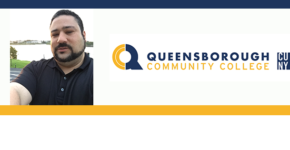
William Blick, Queensborough Community College – Open Educational Resources at Community Colleges
Reducing the cost of textbooks is key for lower-income students. William Blick, assistant professor at Queensborough Community College, examines one way to accomplish this goal. William “Bill” Blick is Assistant Professor at Queensborough Community College of the City University of New York. He is the electronics resources and serials librarian at QCC. His research interests…
-
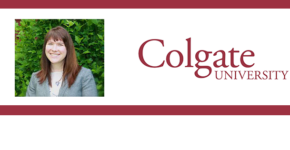
Ashley Taylor, Colgate University – Intellectual Disability and the Production of Knowledge
Who can be a producer of knowledge? Ashley Taylor, assistant professor of educational studies at Colgate University, challenges a stigma. I am Assistant Professor of Educational Studies at Colgate University. I teach educational foundations courses in disability studies, inclusive education, and philosophy of education. I received my Ph.D. in Cultural Foundations of Education at Syracuse…
-
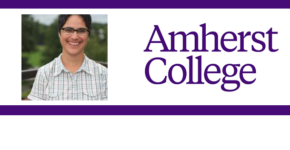
Sheila Jaswal, Amherst College – Retention of Women and Underrepresented Minorities in STEM
On Amherst College Week: How do we increase STEM enrollment for women and underrepresented minorities? Sheila Jaswal, associate professor of chemistry, answers this question. Sheila Jaswal is an associate professor of chemistry and member of the biophysics and biochemistry program at Amherst College. She attended Mills College in Oakland, Calif., where she graduated with a…
-
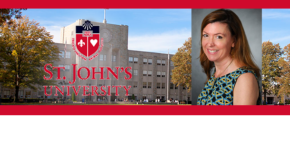
Mary Beth Schaefer, St. John’s University – Minding the Gaps in an Extended Clinical Practice
On St. John’s University Week: What gaps and pitfalls do teacher candidates have to navigate? Mary Beth Schaefer, associate professor in the department of curriculum and instruction at St. John’s University, says there are four main issues to avoid. Mary Beth Schaefer is Interim Associate Dean of Graduate Studies in the School of Education and…
-

Daniel Ness, St. John’s University – The Play-Procedure Continuum
On St. John’s University Week: Learning and practicing for new teachers can be at odds with each other. Daniel Ness, professor in the department of curriculum and instruction at St. John’s University, determines what this can teach us for future generations of educators. Daniel Ness holds a Ph.D. from Columbia University’s Graduate School of Arts…
-
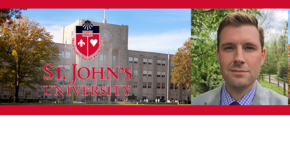
Don McClure, St. John’s University – Skilled Practice in Teacher Education
On St. John’s University Week: Best way to train new teachers? Get ‘em in the classroom. Don McClure, assistant professor in the department of curriculum and instruction at St. John’s University, discusses how this can create a more shared agenda in teacher education. Donald R. McClure, Ph.D., is an assistant professor in the Department of…
-
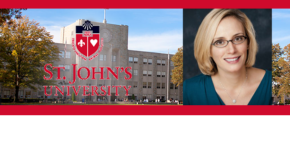
Liz Chase, St. John’s University – Clinical Practice Programs
On St. John’s University Week: You’re not at your best when you face anxiety before an important test. Liz Chase, assistant professor in the department of curriculum and instruction at St. John’s University, looks at teacher candidates and their rigorous clinical practice programs. An assistant professor, in the Department of Curriculum and Instruction, Chase holds…
-
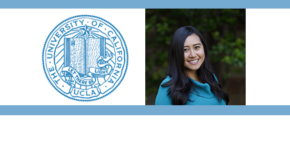
Krystle Cobian, University of California Los Angeles – Women of Color in STEM
On this Student Spotlight: How do we support minority groups who want a career in STEM? Krystle Cobian, PhD student at the University on California, Los Angeles, explains why what happens after graduation can help keep women on the STEM career path. Krystle Cobian is a graduate student researcher at HERI. Her research interests include…
-
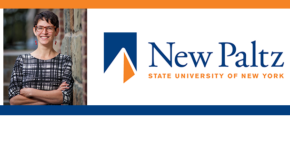
Kiersten Greene, SUNY New Paltz – Tech in the Classroom
Classrooms are becoming digitally smarter by the year. Kiersten Greene, assistant professor of literacy education in the department of teaching & learning at SUNY New Paltz, determines teachers aren’t getting taught how to use these new devices first. Kiersten Greene is an Assistant Professor of Literacy Education in the Department of Teaching & Learning at…
-
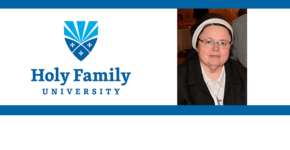
Sister Marcella Wallowicz, Holy Family University – Sabermetrics in the Classroom
The statistics revolution may not just be for baseball. Sister Marcella Wallowicz, associate professor of mathematics at Holy Family University, examines using sabermetrics in your classroom as well as the ballpark. I am an Associate Professor of Mathematics and also the Assistant Dean in the School of Arts & Sciences at Holy Family University. My…
